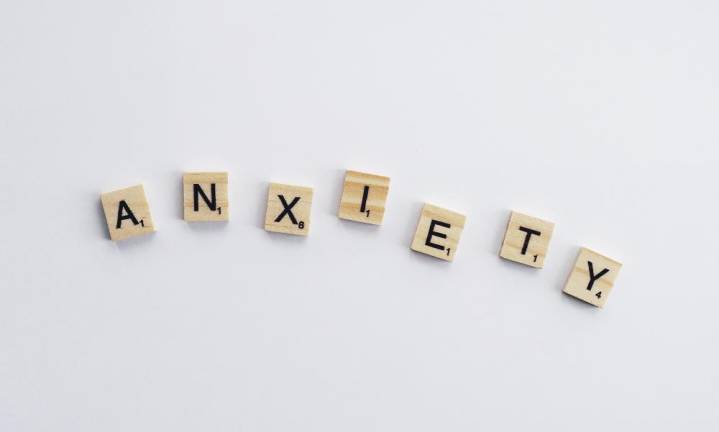10 Tips for Good Mental Health During COVID-19


Nowadays, the government is telling everyone to stay home to prevent the spread of coronavirus (COVID-19). This means that most people are stuck at home and have to set aside their usual social activities for the time being. While this is a good move to prevent the further outbreak of the virus, it may also cause harmful effects on one’s mental health.
Being at home during this pandemic will cause stress and anxiety for many. Some are constantly thinking about their loved ones who are at risk while others worry too much after hearing negative news. For this reason, while it is advised to take precautions for our physical health, it is likewise important to pay attention to our mental health.
Here are some helpful tips which may help you take care of your mental health while at home:
1. Create a daily routine
Do you know what is just as harmful as the virus? It is our thoughts. It is important to keep yourself busy. With a lot of bad news happening today, it is most likely that your thoughts may be negative as well.
Create a routine that prioritizes your well-being. If you are a student, take the opportunity to advance your studies. If you are a parent, bond with your kids to improve your relationship with them. There are even benefits of reading or watching Netflix with the family. If you prefer a more productive activity, you can learn a new exercise routine, or brush up on your cooking skills and try some new recipes.
Your mind must be distracted to prevent negative thoughts from kicking in.
2. Keep in touch
Make this a time to reach out to your friends or family you don’t get to talk often. Stay in touch with them through social media or telephone calls. Ask them how they are or just simply chat with them to pass time.
However, don’t vent all your worries on them or sensationalize things. If you want to share the news with them about the COVID crisis, make sure it is coming from reputable sources. You have to be careful because you may cause them anxiety too.
3. Acknowledge distress
It is okay to get upset and be vulnerable about what you read or watch on the news. If you have mental health problems in the past and the happenings in the world trigger those, it is important to acknowledge and deal with these feelings.
Many experts such as Dr. Nonika Rajkumari agree that it is also important you avoid things that can have a negative effect on your mental health such as drinking and smoking. If you feel like social media is getting overwhelming or toxic for you, you may want to limit your internet activity. Feel free to block or unfriend people who are increasing your anxiety and worry. You can always do virtual consultation with psychologists or psychiatrists, if negative thoughts hamper your daily life.
4. Avoid fake news
Avoid assumptions and rumors about the COVID outbreak. These things can trigger your anxiety. Make sure that you follow reputable sources online and that you are getting quality information from trusted sources. For online information, the news is said to be reliable if it appears three times from different reputable media sources.
5. Continue with your treatment
If you have a pre existing mental condition, you should continue your treatment and follow the doctor’s advice. Make the most of this quarantine period as a time to unwind and enjoy new things you don’t usually do during your regular schedule. It is also helpful if you avoid reading, watching, or listening to news about the crisis on social media or TV to avoid getting upset.
6. Talk to everyone in the family, especially children
The pandemic could cause traumatic depression in anyone. It is important not only to check your mental health but also that of your whole family. Listen to your children’s thoughts about the pandemic and give them insights on how they can take care of themselves without causing unnecessary alarm.
Try to minimize the negative impact the coronavirus and quarantine has on your kids. Explain the news to them, being as truthful as possible, but reassuring them of their safety and the positive things going on.
7. Exercise and eat healthy
Get the whole family involved in your plans for achieving good mental health. Take note that taking care of yourself and others is a good way of coping with stress. Experts say that exercise can help reduce stress and ensures good mental health. Do some exercise routines with your family. You can practice stretching, deep breathing, and meditation along with heavier cardio exercise. .
There is no cure yet for the coronavirus disease. It is your immune system alone that will fight the virus in your body. Eat healthy foods and increase your fruit and vegetable intake. Whenever you can, buy fresh produce. If not possible, then try to stock up while at the grocery store.
8. Get enough sunlight
The sun plays an important role in our mood and immune system. According to a study, vitamin D, which is often found in fatty foods like tuna, egg, and salmon, decreases the risk of depression and improves one’s mental well being. Considering the circumstances where there is a limited food supply, sunlight is a good alternative.
Sun is a good source of Vitamin D. With all the malls closed nowadays, you can include in your family routine bonding time outside the house. Sun not only helps improve one’s mood but according to experts, the sun may also help to curb the outbreak because of the UV rays.
9. Get enough sleep
Uneasiness during this time is inevitable, but it may cause sleepless nights to some. Some may stay up late at night worrying about the pandemic. Some may binge watch on Netflix. Others, however, have no choice but to cut down their sleep because of the demands of their job. You should know that when you are sleep deprived, you are putting your health at risk.
Sleep is important not only for mental health but for overall well-being. Sleep affects the immune system positively. Get enough sleep whenever you can for more positive thoughts and longevity.
10. Maintain a positive attitude
Positive attitude plays a crucial role in turning a worrisome situation into a learning experience. Make this situation a growing experience for you and your family. You can make the pandemic an example to teach your kids the value of handwashing, simple get togethers, or self-care.
Additionally, one thing that may help you maintain a positive outlook is mindfulness. Various free mindfulness apps may help you stay sane such as the Calm app and Headspace.
Conclusion
The COVID-19 outbreak has left everyone worried about their physical health and neglecting the value of mental well-being. An emphasis on good mental health will not only make your quarantine life easier, but will have a direct impact on your physical well-being as well. When you’re mentally unstable your overall well-being is also at stake. Follow these helpful tips and maintain a healthy mind.